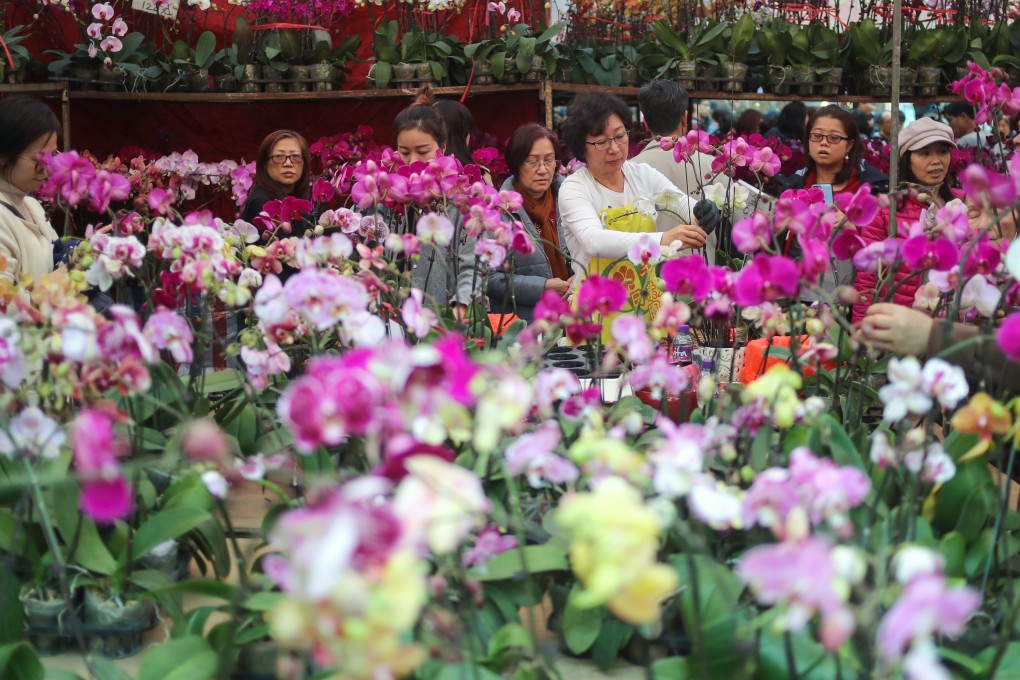Hong Kong florists accuse authorities of turning a blind eye to their plight following cancellation of Lunar New Year fair
- Orchid farmers criticise government for calling off mega event, say their losses will run into millions
- But shoppers in Mong Kok flower market support authorities, saying health is more important amid the pandemic

About 40 flower sellers, who planned to set up stalls across the city in February during the biggest Chinese festival of the year, accused the government of unilaterally cancelling the event. They also lamented the lack of any financial compensation for their losses, which they said could run into millions.
Local orchid farmer Yeung Siu-lung, who attended the meeting, told the South China Morning Post that the Food and Environmental Hygiene Department did not heed calls from the industry for support. He had earlier suggested the government compensate florists with at least HK$100 (US$13) for each unsold pot of flowers due to the abrupt cancellation of the fair.
“It takes time for flowers and other plants to grow. The six-day fair is our once-a-year opportunity to sell our hard-earned harvest,” Yeung said. “They [authorities] just don’t care about us.”
He said he declined the department’s offer to set up shops at basketball courts and courtyards in public housing estates, as he felt “the risk of infection would be too high” at smaller venues. He added he might move to selling flowers online or open up his farm in Yuen Long to customers.
It’s even riskier [to have the fair] in public housing estates
Earlier in the day, Yeung told a radio show his flower wholesale company, Chiba Garden, could suffer some HK$3 million in losses due to the cancellation.